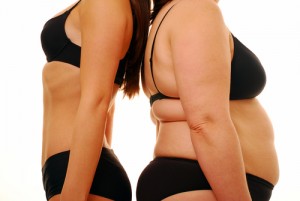An online posting about a guy who supposedly had to suffer through a flight sitting next to an obese man has gone viral. Like many things that go viral online, it’s bullshit.
Mood music:
Rich Wisken blogged that he paid an extra £13.50 for an exit-row seat, expecting to travel from Perth to Sydney with plenty of room. But he found himself seated beside an obese man. Wisken said “Jabba the Hutt” smelled like old cheese and flight attendants paid him little mind when he requested another seat.
People ate his story up, because on the Internet rage trumps truth.
Tony Posnanski came forward, claiming to be the obese man Wisken sat beside. Posnanski wrote of how he used to weigh more than 400 pounds and how he used to buy two seats on flights. This flight, he was thrilled because he could fit in one seat after losing 200-plus pounds. He said he takes care not to be offensive, showering and applying deodorant copiously. Posanski said Wisken shouldn’t have been offended since “I bought him THREE drinks just to shut him up.” He said Wisken bragged about being a famous blogger who would write about the flight. “I always laugh when people say they are famous bloggers,” Posnanski wrote.
For all I know, he’s full of shit, too. I’m skeptical of just about everything online these days.
But this sordid tale hits me where I live, for two reasons:
- I travel often enough to encounter people like Wisken on a regular basis. Guys like him annoy me more than the overweight people I am often seated beside. The sense of entitlement people of his ilk possess makes me want to puke.
- I’m overweight.
There’s often the assumption that someone is fat because they don’t care about hygiene and lack self control. People like that surely exist, but there are many heavy people who struggle with weight for myriad reasons.
My weight has always gone up and down. I’m nowhere close to my heaviest weight, but I’m not at my lightest, either. Some of that is because of a life-long struggle with depression-fueled binge eating. Much of it is because as a kid I was sick with severe Crohn’s Disease and the amount of Prednisone I’ve had to ingest permanently damaged my metabolism.
I’m not sedentary. I’ve always been a vigorous walker. I’m hard-charging in my work and I’m a busy family man. I’m always on the move.
Except for a recent slip, I’ve spent six years avoiding flour and sugar and putting portions on a scale.
Still, I’m not thin, and I don’t lament it. I’m kind of proud of my broken body for surviving so much and still affording me a full life.
I don’t lift weights or run marathons. But I’m a survivor with my own brand of toughness.
If you sit next to me on a plane, you might be annoyed that I need more room than you do. You may steam internally about what a loser I must be to let myself go.
But you don’t know me. Just as Wisken didn’t know the man seated next to him.

The picture Wisken posted of the obese man he shared a flight with. According to Posnanski, that wasn’t him and the photo was faked.




